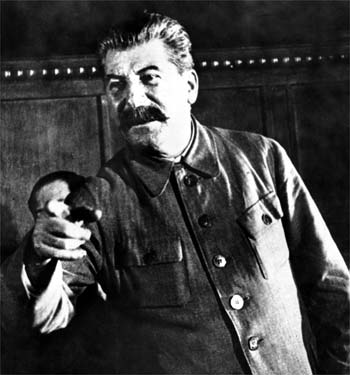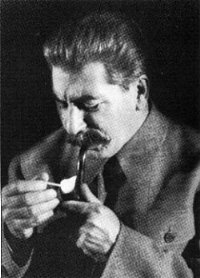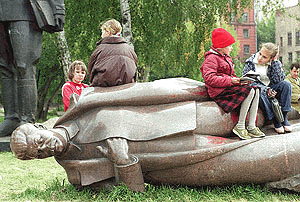|
An Interview with Andrei Konchalovsky By Roger Ebert
|
|
"Why not?" said the projectionist, and the next day, he reported their deliberations to the movie director. "But this was nothing," the projectionist added. "You should have heard what they said about the movies in Stalin's day." "In Stalin's day?" asked Konchalovsky. "Yes. I was his projectionist." Konchalovsky unscrewed the cap from the brandy he had brought along and settled down in the Moscow projection booth. "Tell me more," he said. And the projectionist did, talking for hours about the glorious days of his youth, when he was Josef Stalin's private projectionist, showing him the latest Russian, European, and Hollywood movies, and the newsreels that reported the progress of World War II. "We could write a book," Konchalovsky told him. "We'll sell it to the Americans. We'll make $100,000." "I don't know how much money I'll get," the projectionist said, "but I can tell you how many years I’ll spend in the gulag."
"I made this film to explain Russia to the Americans," he said. "The Americans think the Russians are wonderful people who had a terrible economic system, and all they need is freedom and they will be happy. But it is not that simple. Russians have never been free. There is no precedent for it in our history. Only as recently as 1861 did we free our serfs. Until then, most Russians were slaves - enslaved, not along racial lines, but by other Russians. "There is something in our character that values the security of someone telling us what to do. The reason the Russians hated Gorbachev so much was because he told them the truth, he told them they were not happy, and in Russia, to be unhappy was against the law. In the American media, you foresee a happy capitalist Russia developing. I will be happy if we get to the point where we are a self-sufficient economy where everybody gets enough to eat."
Konchalovsky smiled. "We are strange people, we Russians," he said. "We are great poets, musicians, romantics, visionaries, writers, dancers. But we are not so good at democracy. I would not be surprised if a new dictator comes along, a military man in dark glasses, with braids on his shoulders, who tells the Russians to follow him, and he will take care of them. And maybe they will do so, with relief." It must have taken some courage for him to leave his comfortable position high in the Soviet film industry, to test the unknown realities of Hollywood. "No, because I knew who I was, and I assumed everybody over here did, too. I found out differently. When they found out I was from Russia, they said they loved Russian films, but what film did they mention? 'Dr. Zhivago.' " What discourages him about most Hollywood films, he said, is that they do not require the audience to think. "A good film makes you decide what is good or evil. A bad film tells you at the beginning which is which, and then you sit back and watch good defeat evil."
|
 “I
want to find out what the censors say about my film," Andrei Konchalovsky
whispered to the projectionist. "I'll give you a bottle of brandy if you
eavesdrop after the screening, and let me know what their objections are."
“I
want to find out what the censors say about my film," Andrei Konchalovsky
whispered to the projectionist. "I'll give you a bottle of brandy if you
eavesdrop after the screening, and let me know what their objections are."
 It
is this characteristic that Konchalovsky was trying to capture in "The Inner
Circle," where the projectionist is snatched from obscurity and assigned to
Stalin, and almost explodes with pride. Around him, terrible things happen.
The Jewish couple who share his flat are taken away on obscure charges and
disappear. Ivan's wife wants to adopt the couple's orphaned daughter; Ivan
forbids her. He wants nothing to threaten his status in the ‘inner circle’. And
his obsession runs deeper than she suspects: when she asks him who he loves the
most--herself, or Comrade Stalin? He doesn't bat an eye when he says it is Stalin.
It
is this characteristic that Konchalovsky was trying to capture in "The Inner
Circle," where the projectionist is snatched from obscurity and assigned to
Stalin, and almost explodes with pride. Around him, terrible things happen.
The Jewish couple who share his flat are taken away on obscure charges and
disappear. Ivan's wife wants to adopt the couple's orphaned daughter; Ivan
forbids her. He wants nothing to threaten his status in the ‘inner circle’. And
his obsession runs deeper than she suspects: when she asks him who he loves the
most--herself, or Comrade Stalin? He doesn't bat an eye when he says it is Stalin.